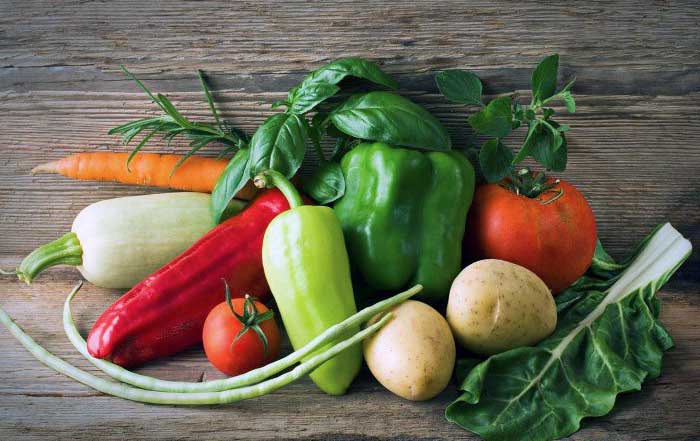The year 2024 has seen a significant surge in interest in organic gardening. This trend is not limited to hobbyists but has also caught the attention of large-scale agricultural producers and policymakers. The shift towards sustainable and eco-friendly practices has become a global phenomenon, driven by the urgent need to mitigate the effects of climate change and reduce environmental degradation. Organic gardening, in particular, has emerged as a key component of this movement, offering a viable alternative to traditional farming methods. The global organic farming market is projected to grow significantly, with a market size of USD 67 billion and an expected rise in the next decade.
The Rise of Organic Gardening
The rise of organic gardening can be attributed to several factors. Firstly, the growing awareness of the negative impacts of chemical pesticides and fertilizers on the environment and human health has led to a shift towards more natural and sustainable methods. Secondly, the increasing cost of traditional farming inputs, such as synthetic fertilizers and pesticides, has made organic methods more economically viable. Additionally, the desire for locally sourced, fresh produce has driven the demand for organic gardening, which often involves growing food in small, backyard spaces. This trend is not limited to individual households but has also been adopted by large-scale agricultural producers, who are integrating organic practices into their operations.
Benefits of Organic Gardening
Organic gardening offers numerous benefits, both environmental and economic. Firstly, it reduces the reliance on synthetic chemicals, which can contaminate soil and water, and harm wildlife. Organic methods rely on natural processes and biological controls to manage pests and diseases, thereby preserving the ecological balance. Secondly, organic farming practices promote soil health, which is essential for long-term sustainability. Healthy soil retains moisture, supports biodiversity, and improves the overall quality of the produce. Thirdly, organic gardening can contribute to food security by providing fresh, locally grown produce, which reduces the carbon footprint associated with long-distance transportation. Finally, the economic benefits of organic gardening are significant. Organic produce often commands a higher price in the market, making it a lucrative option for farmers. Additionally, organic methods can reduce the cost of production by eliminating the need for expensive synthetic inputs.
Challenges in Organic Gardening
Despite its numerous benefits, organic gardening faces several challenges. Firstly, the transition from traditional to organic methods can be costly and time-consuming. Organic farmers need to invest in new equipment, training, and infrastructure, which can be a significant barrier for small-scale farmers. Secondly, the availability of organic inputs, such as compost and natural pesticides, can be limited, especially in rural areas. This scarcity can hinder the adoption of organic practices. Thirdly, organic certification can be a complex and costly process, which may deter some farmers from pursuing organic certification. Finally, the lack of government support and incentives for organic farming can make it difficult for farmers to transition to organic methods.
Government Support for Organic Farming
Governments around the world have begun to recognize the importance of organic farming and are implementing policies to support its growth. For instance, the European Union has established the Organic Farming Regulation, which sets standards for organic production and provides financial support to organic farmers. Similarly, the United States Department of Agriculture (USDA) offers various programs to support organic farming, including the Organic Certification Cost Share Program and the Organic Transition Initiative. These initiatives provide financial assistance to farmers for the costs associated with transitioning to organic methods and obtaining organic certification. Additionally, many countries have introduced tax incentives and subsidies for organic farmers, making it more attractive for farmers to adopt organic practices.
Corporate Initiatives in Organic Farming
Large corporations are also playing a significant role in promoting organic farming. Companies like Walmart, Costco, and Whole Foods have committed to increasing their sales of organic products, which has driven the demand for organic produce. These companies are also investing in their own organic farms and supply chains to ensure a steady supply of organic products. For example, Walmart has set a goal to source 50% of its produce from sustainable sources by 2025. Similarly, Costco has committed to increasing its sales of organic products by 10% annually. These corporate initiatives are not only driving the demand for organic products but also creating new opportunities for organic farmers.
What Is Next For Organic Gardening
Organic Gardening Trends 2024
Market Size
Benefits
- Reduced chemical use
- Improved soil health
- Increased food security
- Economic advantages
Challenges
- Costly transition
- Limited organic inputs
- Complex certification
- Lack of government support
Future Outlook
Promising growth with technological advancements in precision agriculture and biotechnology.
The future of organic gardening looks promising. As the awareness of the environmental and health benefits of organic methods grows, more people are likely to adopt organic practices. The increasing demand for organic products will also drive the development of new technologies and innovations in organic farming. For instance, precision agriculture techniques, such as drones and sensors, are being used to optimize crop yields and reduce waste. Additionally, the use of biotechnology and genetic engineering is being explored to develop crops that are more resistant to pests and diseases, thereby reducing the need for synthetic pesticides. These advancements will make organic farming more efficient and sustainable, ensuring its continued growth and adoption.
Organic gardening has gained significant traction in 2024, driven by the growing awareness of the environmental and health benefits of organic methods. The benefits of organic gardening, including reduced chemical use, improved soil health, and increased food security, make it an attractive option for both individual households and large-scale agricultural producers. While there are challenges to be addressed, such as the cost of transitioning to organic methods and the availability of organic inputs, government support and corporate initiatives are helping to overcome these barriers. As the demand for organic products continues to grow, the future of organic gardening looks bright, with new technologies and innovations promising to make it even more sustainable and efficient.

